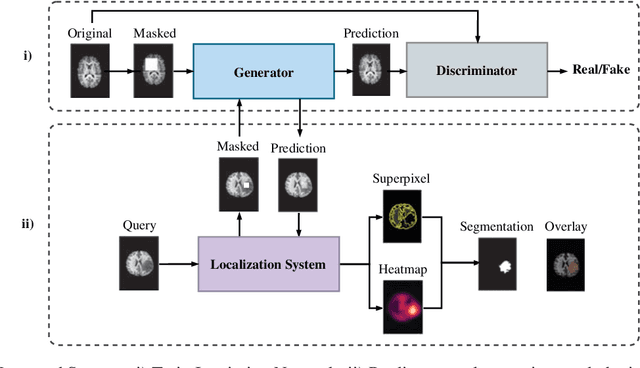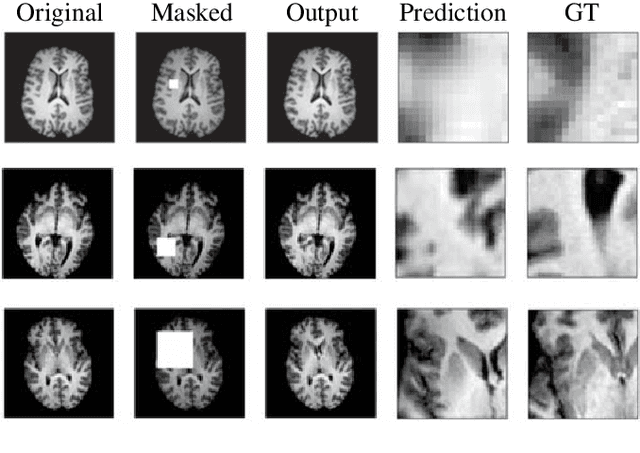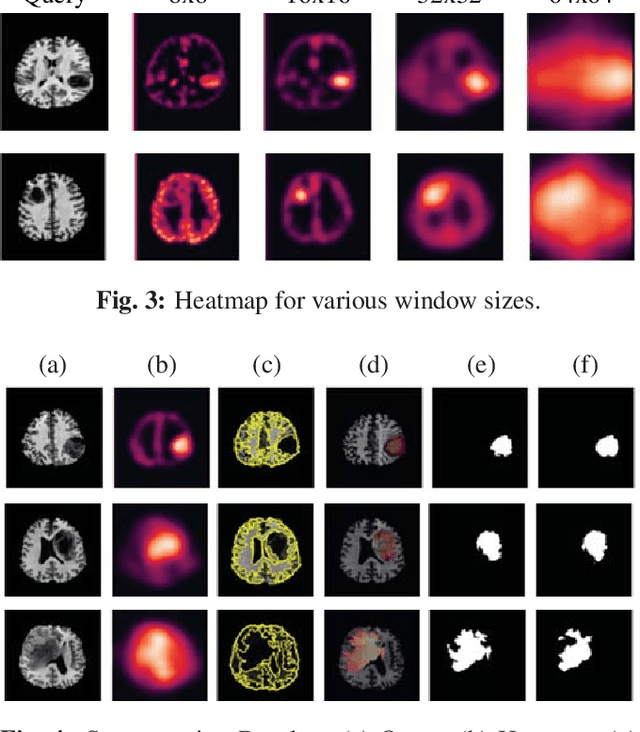Unsupervised Region-based Anomaly Detection in Brain MRI with Adversarial Image Inpainting
Paper and Code
Oct 05, 2020



Medical segmentation is performed to determine the bounds of regions of interest (ROI) prior to surgery. By allowing the study of growth, structure, and behaviour of the ROI in the planning phase, critical information can be obtained, increasing the likelihood of a successful operation. Usually, segmentations are performed manually or via machine learning methods trained on manual annotations. In contrast, this paper proposes a fully automatic, unsupervised inpainting-based brain tumour segmentation system for T1-weighted MRI. First, a deep convolutional neural network (DCNN) is trained to reconstruct missing healthy brain regions. Then, upon application, anomalous regions are determined by identifying areas of highest reconstruction loss. Finally, superpixel segmentation is performed to segment those regions. We show the proposed system is able to segment various sized and abstract tumours and achieves a mean and standard deviation Dice score of 0.771 and 0.176, respectively.
 Add to Chrome
Add to Chrome Add to Firefox
Add to Firefox Add to Edge
Add to Edge